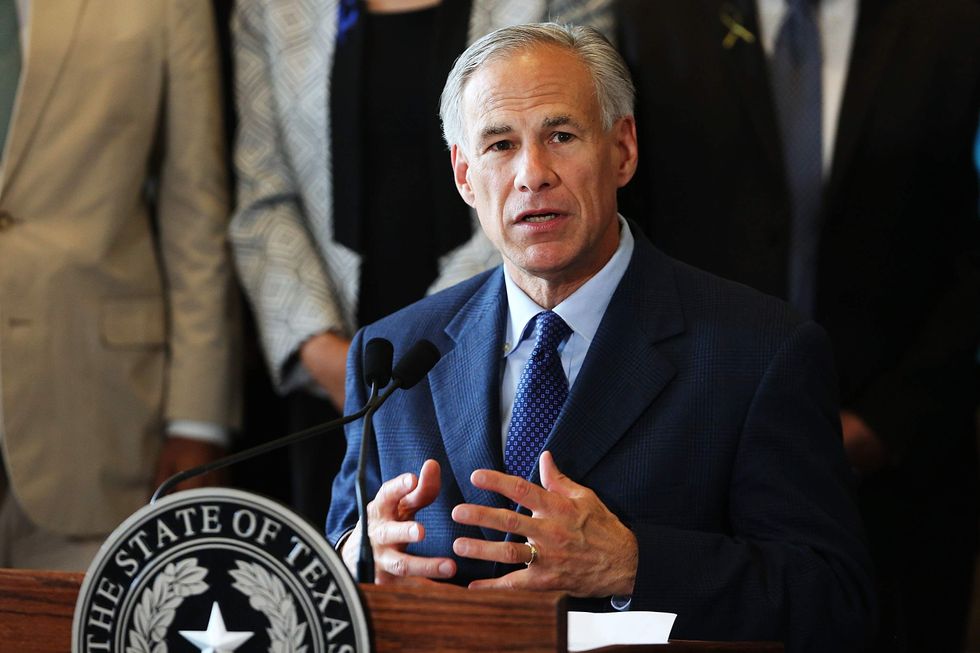
Texas Gov. Greg Abbott signed a law Sunday banning sanctuary cities in the Lone Star State. The new law allows law enforcement officers to inquire about a person’s immigration status during any detainment stop. (Spencer Platt/Getty Images)

Texas Republican Gov. Greg Abbott took a defiant stance Sunday and signed into law a bill banning sanctuary cities in the Lone Star State and imposing stiff penalties for violators.
The new law allows law enforcement officers to inquire about a person’s immigration status during any detainment stop, such as during a traffic stop. Previously, cities such as Dallas, Houston, Austin and other major Texas cities and counties had "sanctuary city" laws that prohibited officers from asking the legal status of citizens.
The law also imposes penalties on law enforcement officers, agencies and other state institutions that fail to comply with the law. Insubordination to the law includes failing to cooperate with federal immigration officials, who often need the assistance of local law enforcement to enforce federal immigration law. Penalties include monetary fines of up to $25,000 per day; removal from office, such as in the case of sheriffs, who are typically elected; and even jail time.
Abbott signed the law during a Facebook Live broadcast from his office in the Texas governor’s mansion.
"Texas has now banned sanctuary cities in the Lone Star State,” Abbott said. “Let’s be clear: The reason why so many people come to America is because we are a nation of laws and Texas is doing its part to keep it that way."
"[The bill] ensures that law enforcement officers in Texas can and will cooperate with ICE. It also requires sheriffs to honor ICE detainer requests," Abbott explained. "It simply makes sense. Citizens expect law enforcement officers to enforce the law, and citizens deserve lawbreakers to face legal consequences."
The bill came to Abbott's desk after he declared earlier this year that banning sanctuary cities in Texas is an "emergency" item for the Texas Legislature. Following that announcement, the state Senate acted quickly and approved legislation in February. The bill, which faced a bit more scrutiny in the state House, passed the lower chamber April 27. The Senate approved the House's changes May 3 and sent the bill to the governor.
Texas Republicans have been actively working since 2011 to pass legislation banning sanctuary cities, but all prior attempts proved unsuccessful. Under the leadership of Abbott, however, Republicans were able to finally seal the deal.
Still, the success of the legislation didn't come without fierce opposition.
The American Civil Liberties Union of Texas labeled the law "racist" and said it "encourages racial profiling."
"This is not the Texas I know," Terri Burke, executive director of the ACLU of Texas said, according to CNN. "This racist and wrongheaded piece of legislation ignores our values, imperils our communities and sullies our reputation as a free and welcoming state."
Thomas Saenz, president of the Mexican American Legal Defense and Educational Fund, said they plan to challenge the law in court.
"MALDEF will do its level best, in court and out, to restore Texas, the state where MALDEF was founded, to its greater glory, and to help Texas to overcome 'Abbott's Folly,' " Saenz said, according to The Dallas Morning News.
In addition, the police chiefs in every major city, including Dallas, Houston, Austin, and San Antonio, opposed the law, according to KVUE-TV.
The law goes into effect Sept. 1.